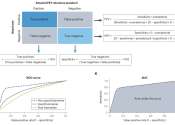Severe menopause symptoms may take toll on brain health
With more than 24 million people globally living with dementia without a cure in sight, there is a lot of focus on ways to prevent and delay cognitive impairment. A new study suggests that severe menopause symptoms such as ...
3 hours ago
0
0









